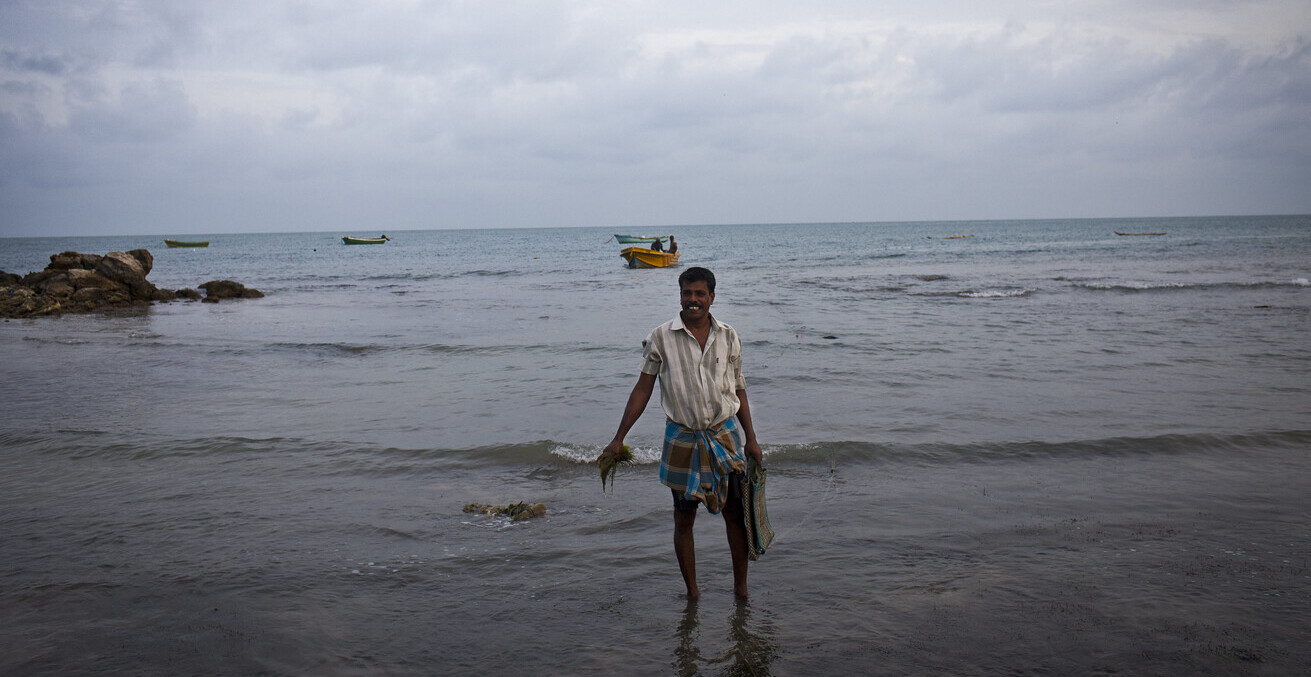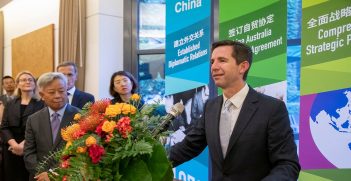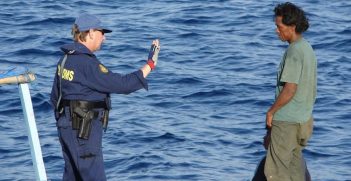On Sri Lanka, the New Labor Government Balances Border Security and Humanitarianism

The new Labor government has proactively engaged with Sri Lanka as its domestic situation deteriorates. But Australia has been at pains to note that its assistance does not mean a weakening of its borders.
Australia understands the essence of responsibility in international relations. As the country’s new Prime Minister Anthony Albanese said, “strong on borders without being weak on humanity.”
Australia’s recent decision to donate 4200 GPS trackers to Sri Lanka, a country in the throes of bankruptcy, reinforces the truth of this statement.
Australia’s impactful contribution intends to enhance Sri Lanka’s current efforts to prevent an escalating trend in human trafficking. There is an apparent increase of traffickers taking advantage of people’s desperation during the country’s worst economic crisis since 1948, consequently creating a complicated immigration issue for targeted countries.
Australia’s new Home Affairs Minister Clare O’Neil, who recently visited Sri Lanka, said, Australia and Sri Lanka have “in recent weeks and months… detected and stopped every boat that has tried to sail to another country, saving many lives at sea.”
Ms O’Neil also launched a new fishery monitoring centre in Colombo, together with Sri Lanka’s Fisheries Minister Douglas Devananda. This monitoring centre focuses on tracking fishing vessels at sea. As the Australian Minister said in a statement, “Fishing vessels should only be used for fishing and not for other activity.”
However, Australia is also keen to help Sri Lanka’s fisheries industry grow to another level. As Ms. O’Neil’s statement said, the monitoring centre, apart from tracking “irregular vessel movements” will also help control overfishing and other “illicit fishing practices,” and ensure the prevalence of sustainable and ethical fishing practices.
Moreover, Australia, responding to the multiple crises in Sri Lanka, has offered an AU $50 million development package to the country. According to Minister of Foreign Affairs, Penny Wong, $22 million of the package will be given immediately to the World Food Program to provide emergency food supplies for the neediest three million people in Sri Lanka.
Prime Minister Albanese said Australia will continue to “look after our international obligation to do the right thing.” However, he was clear about the country’s stance on immigration. “But the right thing is not a free-for-all whereby people who turn up will be settled. We understand that there are issues in Sri Lanka and that the wrong messages are being given by people smugglers.”
In fact, human smugglers appear to be pitching the recent Labor Party win in Australia to vulnerable Sri Lankans, as a positive factor in being allowed into Australia. Australia’s Treasurer, Dr. Jim Chalmers, said four boatloads of asylum seekers were intercepted by Australian Border Force officers, while “dozens of others” were prevented from leaving Sri Lanka. He also said Australia is very “upfront” about its immigration stance, which was clearly communicated by Ms. O’Neil. “Here in Sri Lanka, I have a very simple message: if you attempt to enter Australia by boat you will be immediately sent back. Australia’s border protection policies have not changed.”
The fact is that “irregular maritime arrivals” or illegal entering of Australian waters by “boat people” have been consistently taking place since the 1970s, when the first boatloads of asylum seekers arrived in Australia during the post-Vietnam War era. Contemporary boat people’s arrivals are concerning not just for the arrivals themselves, but because of the element of transnational crime facilitating such arrivals.
As Australia operates a universal visa system, which is governed by the Migration Act of 1958, it is extra difficult for people in some countries to fly into Australia with a valid visa. This is a critical reason why people seek asylum by boats.
The sea route to Australia was through Indonesia, with human traffickers extorting large amounts of money from asylum seekers. Several hundreds have died in the process of the perilous journey. At the height of boat people arrivals, around 18,000 people reached Australia illegally by sea.
Meanwhile, according to the 1958 Migration Act, people coming without a valid visa, to mainland Australia or to an “excised offshore place,” had to be detained in immigration detention until they were given a visa, or removed from Australia.
Subsequently, following the release of the report of the Expert Panel on Asylum Seekers in August 2012, the Australian government passed amendments to the Migration Act, designating Nauru and Papua New Guinea (PNG) as “regional processing countries.” However, since December 31, 2021, PNG is no longer involved in this task.
In 2013, the Australian government, led by the Liberal-National Coalition, introduced Operation Sovereign Borders, a military-led border security to further discourage asylum seekers and refugees reaching mainland Australia and its territories by boat. Under this policy, military craft patrolling Australian waters, intercepted migrant boats and towed them to Indonesia or sent the asylum seekers back in dinghies or lifeboats.
Statistics indicate that from 2013 up to August 31, 2021, 873 people arriving illegally on 38 boats, were returned to their countries of departure.
Without doubt, illegal arrivals by boat dropped significantly, with the introduction of these tough policies.
As a sovereign country, the Australian government prioritises safeguarding its borders and preserving public confidence in the country’s immigration program. At the same time, it is committed to preventing human smuggling, to save the lives of desperate people willing to undertake dangerous and futile voyages. To quote William Shakespeare, “Desperate times breed desperate measures.”
Anton Lucanus holds a BSc from the University of Western Australia and is the Founder of Neliti, Indonesia’s largest digital library with over 200,000 publications and 3 million monthly website visitors. Anton is a past recipient of the AIIA’s Euan Crone Scholarship.
This article is published under a Creative Commons Licence, and may be republished with attribution.





